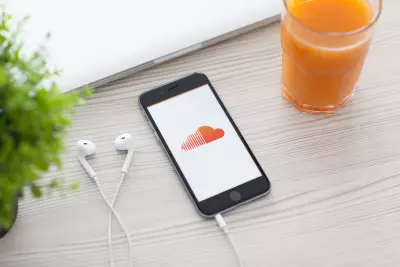Common Etsy Scams to Avoid
Table of Contents
- By Greg Brown
- Published: Apr 07, 2023
- Last Updated: Jan 24, 2025

Etsy, since 2005, has been a marketplace for millions of small business owners, selling everything from jewelry to toys. Without a doubt, an online criminal is lurking around every virtual corner.
It is estimated that nearly six to eight million individual shop owners are doing business on the Etsy platform. One of the significant aspects of using Etsy to sell your goods is they offer fraud protection in which they pay for any fraudulent transaction under $250. However, scams can abound on the platform.
Etsy Scams
Etsy claims its site is secure because of its payment system and buyer protection plan. With billions of dollars processed, you can be sure every type of scam artist, hacker, and online criminal sees a dollar sign.
With millions of shop owners, it is a certainty that a percentage of these are scam sites. These sites are inviting and well-designed while offering their guests malware links and compromised attachments. Every 50-word description of the site says there are millions of sellers, with a qualifying statement of “most of whom are trustworthy.”
A small percentage of hacking sites can cause a world of hurt and catastrophe for plenty of legitimate shops.
- While browsing the different shops, you may find a seller offering a substantial discount, saying, “buy this item on my website instead.” Usually, these sites offer too good-to-be-true discounts and fake items. The Better Business Bureau offers a warning for online shoppers.
- There are going to be plenty of sites that offer nothing but malware links and attachments. Be wary of shops that offer nothing in return for a payment you need to make. These shops exist only to steal personal information and your money.
- Sites linked to Etsy are used to steal banking and credit card information through cross-site scripting attacks. The buyer and seller sides can both use these scams.
- Never agree to complete your transaction by bitcoin. Paying with any digital currency means the money comes straight from your digital wallet. The money goes directly to the buyer without any intermediary. What this means for the seller, the transaction is complete and cannot be refunded.
- Non-reversible payment methods are a constant problem for the Etsy platform. Consumers should avoid any shop requiring non-reversible payments. Many shops on Etsy exist because of the protections, such as buyer fraud protection up to $250.
- Hackers get their clients to pay by gift card, wire transfer, and apps like Venmo and CashApp.
Scammers still use the old standby hacking methods of fake product and service listings. With these scams, the victim is enticed to purchase the product of their dreams, only to find out it is a cheap copy or the wrong order. Another old standby is when products are shipped to a random address and marked delivered, so buyers can’t claim a refund.
Email Fraud

Email is once again the primary transport type of malware messaging to shop owners, along with suspicious download codes. The crime is called a 419Scam, Advance Fee scam, or The Nigerian Scam.
Messages are sent to the shop owner concerning an item in their store. The message says to “proceed with caution.”
The scam is to convince a shop owner to accept payment for more than the item is worth. If the scammer succeeds, they will get both the product and money in return, with very little chance of being caught.
- Look for messages with odd formatting and unusual phrasing for the service or product. Does the message immediately offer overpayment for the item without inspection or details, and is the message vague? Scammers may offer to say; they are a traveling executive and therefore have little time to shop. Scammers target high-priced items and shop owners; they will insist you negotiate off-site with a personal email. Every scammer refuses to go through Etsy checkout, disqualifying the transaction from protection.
- Expect 419Scammers to open multiple accounts and email blast multiple sellers to find the unwitting.
Is Etsy Safe?
Keeping your money safe on Etsy means doing homework on the shop and its owner before purchasing. Etsy provides several tools for the buyer to evaluate a seller.
- Once you have decided on an item, look around the seller’s shop. Pay attention to the number of items the owner stocks and how many sales. Obviously, avoid shops with only a few sales and no reviews. Make sure to read reviews for the shop; how many rating stars?
- Legitimate Etsy shops are proud of their ratings and features, such as smooth shipping, quick support answers, and a well-designed shop.
- 5-Star ratings and “on Etsy Since” tell buyers how trustworthy the shop is and how long the seller has been on the platform. Higher ratings tell buyers products are delivered on time and in the same condition as described online. 5 stars tell buyers they can trust the product will be delivered as advertised.
Etsy does a fair job of intercepting most fake products and services. However, even the platform admits there may be scammers. A few things to consider is how long the shop has been selling on the Etsy platform. Click on the shop name and scroll to the bottom, and in the “About” section is the year the seller opened the shop.
Trustworthy Etsy shops have well-defined product photos with badges that tell buyers they are dealing with a legitimate seller. Make sure the refund policies are stated upfront and are clear to read. The Etsy platform is safe for credit card purchases because buyers never see CC information. The Etsy seller must use either PayPal or Etsy payments for any transaction. Transport layer security encrypts CC details, and buyers should only enter their numbers in Etsy or PayPal.
Make Sure to Use Etsy Safely
Etsy is a great place to find those unique and crafted items as presents or décor. It is essential to look around the shop and ensure it is legit. Scammers are everywhere on the internet. Buyers and sellers need to be aware of the hazards on the platform while enjoying their shopping.
















